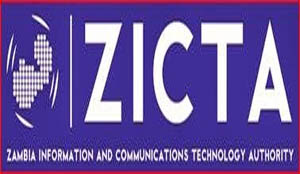 By HUMPHREY NKONDE –
By HUMPHREY NKONDE –
THE deaf on the Copperbelt have complained that they do not have adequate information relating to the forthcoming Presidential by-election on January 20, 2015 due to lack of sign language interpretation on ZNBC programmes.
Zambia goes to the Presidential by-election following the death of President Michael Sata on October 28, 2014.
Deaf groups on the Copperbelt said that was so because sign language interpretation was only done during news time and asked ZNBC and the Electoral Commission of Zambia (ECZ) to correct the situation.
They made the complaint last Friday during a workshop that was organised by the Zambia Information Communication Authority (ZICTA) regarding information communication technology for the disabled at Ndola’s Fatmols Lodge.
The deaf could not follow debates on the Presidential by-election because there was no sign language interpretation on ZNBC programmes.
They paid licences but were not getting benefits out of television programming including important national issues such as debates and adverts regarding the forthcoming Presidential by-election.
One deaf woman said that there was inadequate information on the funeral procession of President Michael Sata in sign language and in future such national events should be user friendly to the disabled.
A physically challenged participant wondered whether ECZ would offer the blind, ballot papers with Braille impressions so that they voted independently in the forthcoming Presidential by-election.
The workshop, which was organised ahead of the International Day for the Disabled (IDD) on December 3, was attended by the deaf, blind, the physically handicapped and albinos resident on the Copperbelt.
In response, Independent Broadcasting Authority (IBA) licensing manager Muchemwa Sinkala said that when the Act was formed it did not take into consideration aspects of disability.
Mr Sinkala said that even the sign language interpretation on ZNBC news was done on request rather than it being legally binding on the national broadcaster.
He, however, said that IBA encouraged proposals on how public and private broadcasting could be improved generally and how it would cater to the specific needs of the disabled.
The IBA licensing officer said compliance regarding the needs of persons with disabilities in broadcasting was difficult by ZNBC and other broadcasters without adequate legislation.
Mr Sinkala said that some of the problems in broadcasting would be solved next year once Zambia migrated from analogue to digital broadcasting whose programming would have pictures, sound and text displayed at the same time.
He said that digital broadcasting would have more space and that some channels may be specifically for the disabled.






